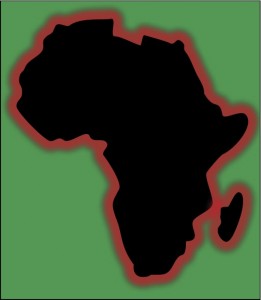Three years ago, Rebekah Shulz (‘10) and Senior History Major Kareen Getfield began to seek support from faculty members in creating an African Studies major. By this time, both Macalester and Carleton were offering their own versions, so they thought that it would be a worthwhile endeavor for Gustavus to create a similar program.
Upon hearing about this, Communication Studies Professor Martin Lang suggested that they create a monthly forum titled “Africa Workshop.”

The forum, under leadership of Professor Paschal Kyoore, gave presentations and formulated discussions that focused on an African country or theme related to Africa.
As time went on, serious discussions about creating an African Studies minor were underway. Faculty members Elizabeth Baer of the English department, Lencho Bati and Robert Douglas of the Geography department, Mimi Gerstbauer of the Political Science department, Patric Giesler of the Sociology/Anthropology department, Anne-Marie Gronhovd and Paschal Kyoore of the Modern Languages, Literatures & Cultures department and Kate Keller of the History department are the current faculty members serving on the African Studies Committee.
Together, they came up with a comprehensive list of reasons as to why Gustavus should offer this minor. One point of focus is that Africa is a continent largely underrepresented. In fact, 13 percent of the population in the United States is of African descent. In Minnesota alone, immigration from countries such as Liberia, Somalia, Ethiopia, Eritrea, Sudan, Ghana, Kenya and Nigeria is on the rise.
In addition to this, an African Studies minor would both attract minority students who, for heritage reasons have a special interest in Africa and attract students who want to broaden their knowledge of foreign cultures. When asked why she thinks an African Studies minor is something that Gustavus should incorporate into its offerings, Professor Baer brings up a good point in that a lack of African Studies is a huge gap in our curriculum and our lack of knowledge on the subject as students inhibits our world literacy. In a world that is constantly operating at an increasingly global level, having broad horizons and worldly knowledge is 100 percent necessary.
If the African Studies minor is passed by the school, there will be several new core courses offered, as well as some complimentary classes that are already in existence. Some of the core courses include: Introduction to Africa (AFS 190), Africa Through Cinema: Myth and Reality (AFS 350), and Reading in the World (ENG 101). In addition to these, courses such as World Regional Geography, The Politics of Developing Nations, African Women: Tradition and Modernity and The Anthropology of Religion, amongst others will be courses that students can choose from in order to meet the five-course requirement.
Although the eventual goal is to turn the African Studies minor into a major, having students participate in the minor is a critical stepping stone to ensure a successful program.
According to Kyoore, “Over the years, there has been a growing interest in Africa on the part of students and faculty alike.”
If the Gustavus community integrates this program into its curriculum successfully, students will have even more opportunities to learn about a continent that, in recent times, has been in the news more than any other.
I like the idea of this article, but not the execution. Really, this is poorly written.
I like the idea of your comment, but not the execution.
I think you meant “North American Studies,” because African and black are two different things sir. You mentioned racism?
Caleb, please re-read the paragraph that contained this supposedly “racist” material. How in the world is it racist to point out that we should study a population that is severely underrepresented? The percentage listed (13%) was included in this article because it was a) provided to me by Paschal Kyoore, and b) is meant to show the reader that a large portion of our population is of African descent, therefore it is important to be literate and knowledgeable on the subject of African Studies. If this isn’t sufficient, I’d love to hear you elaborate further on your opinion that I am supposedly racist.
This is great. (the ideas AND the article) I know a lot of people have been putting time and effort into making this African studies program a reality. It’s nice to see people making a difference. Kudos to Rebekah and all the other faculty members and students that were involved with this cause.
Hello, I love to read more about this topic. I appreciate you for publishing this.